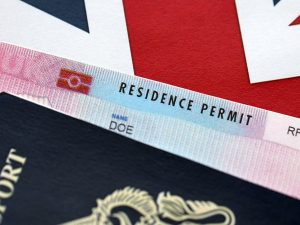
The overseas lifestyle comes with some fantastic benefits, but also a certain amount of extra admin – not least among which is organising your finances. In this article, we’re looking at managing your international savings, from where you can actually keep them to ways to protect your money from currency volatility.

Can you keep bank accounts and savings in different countries?
The first question that comes up when we think about moving abroad is whether it’s even allowed to keep money in different countries. In general, the answer is yes from a policy point of view, but individual banks and financial institutions differ in what they allow.
Your current or checking account – the everyday one you use for payments – may need to close depending on your bank’s policies. For example, in the UK, Santander will let you keep your current account open, with some restrictions on things like direct debits, whereas Barclays will not allow an account with a non-UK address.
As for savings, you can often keep these open in their original ‘format’ but may no longer be able to contribute to them. For example, if you hold a UK ISA, then you can keep it open and still continue to earn interest, but you can’t put further money into it.
However, that’s not to say that all your savings activity will freeze. What most banks will offer is a move to either an international or offshore bank account.
What is an offshore savings account?
Offshore savings accounts are ones situated outside of your country of residence that allow you to continue to invest as well as save the existing sum of money. Once considered as something for high-net-worth individuals, many mainstream banks now offer offshore accounts, sometimes marketed also as “expat accounts”.
Some of the disadvantages can include that they come with a fee and aren’t always covered by a usual financial protection assurance. For example, the UK’s Financial Compensation Scheme, which protects deposits up to £85,000, usually doesn’t apply to offshore accounts. However, as accounts will often be legally located in offshore jurisdictions, they may be protected by other schemes, such as the Jersey Bank Depositor Compensation Scheme, which goes up to £50,000.
So, to sum it up, as an expat managing international savings, you may find yourself with a combination of a ‘legacy’ current or checking account in your previous country; a new current account in your new country; investment vehicles like ISAs in your previous country; savings accounts in your new country; and possibly an offshore or international savings account located in a third jurisdiction.
On top of this, you may also have international pensions; if you do, make sure to check out our dedicated article on managing them.
With so many different accounts, what tactics can you use to get the most out of your situation?
How can you manage your currency risk to your advantage?
Anyone familiar with the currency markets will already have thought of the first problem – and possible benefit – of having money in multiple countries.
While you know exactly how much you have in, let’s say, pound sterling and euros, how much those savings are worth in the other currency is constantly changing. The currency markets are impacted by a vast range of factors that make the currency rates constantly move, sometimes quite dramatically in a short period of time.
For example, if you have £100,000 in your savings, that would have been worth €121,084 on 4th March 2022. However, the same amount would have been only €111,407 on 4th February 2023, a loss of nearly €10,000 in less than a year… This could be the difference between being able to put a deposit down on your perfect home or seeing the purchase fall through.
There are, then, two conclusions you can draw from this:
1. Manage your exposure to currency volatility
Hedging strategies are your trump card when it comes to managing international savings safely. Although the phrase hedging might sound risky to us, with most of us only using it in the sense of “hedging an answer” and not giving a direct response, in financial terms, it’s the total opposite.
Hedging refers to strategies put in place to reduce or control the risks to your money. For international savings, this could look like the following:
- Forward contracts: If you know you have a purchase coming up or conversely know you’re transferring a large sum of money into your savings within a set time period (such as from a house sale), then a forward contract can help ringfence that sum against the live markets. It lets you lock in today’s exchange rate for a set period, such as a year, for a set sum of money. This way, even if the markets change, you know exactly what you’re getting.
- Market orders: If you’re looking to move money between savings accounts (and currencies) without particular urgency, then a market order can let you target a particular rate and have the transfer automatically done once that rate has been reached. Even if you’re busy at the time or can’t constantly monitor the markets, it will still happen.
- Rate alerts: Similarly to market orders, a rate alert will let you know as soon as the markets hit a particular rate. It won’t, however, lead to an automatic transfer, meaning you can act on the information as you see fit.
2. Consider how you can spread your risk
In addition to hedging strategies for your transfers, you can also see from our example above the importance of spreading your risk across your savings. An advantage of being able to access savings in different currencies means that you can keep certain sums in currencies that may follow different trajectories. If, for example, you are living between the US and the UK and you keep savings in both currencies, you may possibly see greater security in that when one currency is weaker, another could be stronger.
While this isn’t sufficient on its own as a derisking strategy, it is worth considering as an upside to managing international savings. This is a very common strategy among expats from countries whose own money is considered historically weak and who prefer to keep at least some savings in a safe haven like the USD.

Managing international savings doesn’t need to be complicated
As you can see, it doesn’t necessarily need to be overly complicated or risky to manage international savings. Once you’ve understood the rules around your particular banking or financial institutions over holding money with residency in a different country, then the most important action for you is to work out how you will derisk your exposure to the international exchange markets. With any necessary hedging solutions in place, you can budget accurately and know exactly what you’ll get from your savings.
Alexander Fordham
Alexander is a writer specialising in foreign exchange and overseas property, with seven years’ experience helping people to purchase abroad and send money safely, including hosting seminars on the topics around the UK. You can find him out hiking, travelling and working from Spain in the sunnier months.



